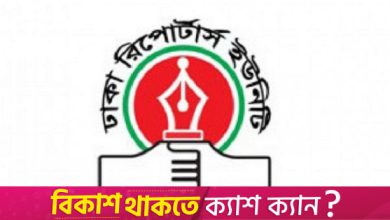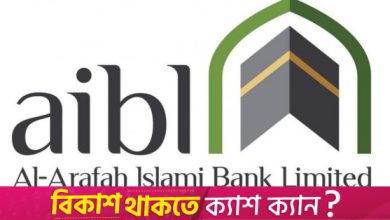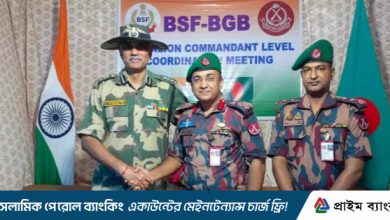Skilling up, saving energy: How Brother is empowering Bangladesh’s garment industry


HN Ashiqur Rahman is the first Bangladeshi country director of Brother Bangladesh. He has been in the Bangladesh readymade garment sector for the last 20 years. He shared his extensive experience in the RMG sector in an interview with The Business Standard.
Can you share your 20 years journey and how it feels to reach this milestone?
It has been an incredible journey, filled with challenges, learning, and immense satisfaction. When I started 20 years ago, the Bangladesh RMG sector was very different from what it is today. Over the years, I’ve seen this industry evolve, adapt, and grow into a global powerhouse. Leading Brother Bangladesh has been a privilege, and being the first Bangladeshi country director of such a prestigious company is both an honour and a responsibility. Our achievements over the past two decades are a testament to the hard work and dedication of our entire team.
Could you highlight some of the major contributions and innovations that have marked Brother’s journey in Bangladesh?
Brother’s journey in Bangladesh is marked by key innovations. Introducing the servo motor was a game-changer, significantly reducing power consumption and enhancing efficiency. Our IoT Nexio system revolutionised factory operations with real-time production monitoring and diagnostics. Additionally, our short thread features improved garment quality by reducing thread length from 5mm to 3mm. We’ve also been pioneers in promoting sustainability, with over 135 LEED-certified factories using our machines, setting high standards for eco-friendly manufacturing.
Training and capacity building have been key focus areas for Brother Bangladesh. Can you elaborate on these initiatives and their impact on the industry?
Training and capacity building are central to our mission. Over the past 25 years, we have trained over 20,000 garment factory employees in Bangladesh for free, enhancing their skills to meet modern manufacturing demands. During the Covid-19 pandemic, our “1 Line Assessment” initiative provided free assessments and consultations to 500 factories, optimising their production lines and demonstrating our commitment to industry growth and resilience.
The Bangladesh RMG sector is facing challenges, including a significant increase in the minimum wage. How can Brother’s technology help manufacturers navigate these challenges?
The minimum wage increase is challenging, but Brother’s advanced technologies can help mitigate the impact. Our IoT solutions offer real-time monitoring and diagnostics, optimising operations and minimising downtime. Additionally, our servo motor technology reduces energy consumption, resulting in significant cost savings. By investing in these innovations, manufacturers can stay competitive despite higher labour costs, helping the RMG sector adapt and thrive.
Looking ahead, what are Brother’s plans for the Bangladesh market, and how do you see the future of the Bangladesh RMG sector?
Brother’s plans focus on innovation, sustainability, and collaboration. We aim to introduce more eco-friendly, user-friendly machines with advanced automation. Our evolving IoT system will boost productivity and ROI for our customers.
I am optimistic about the RMG sector’s future. It has shown resilience and adaptability. With continued investment in technology and skill development, the sector can maintain global leadership. Collaboration among industry stakeholders, including educational institutions, will be key to fostering a skilled workforce and addressing future challenges.
Brother has been instrumental in driving sustainability in the RMG sector. Can you share more about your sustainability initiatives and their impact?
Sustainability is a core value for Brother. Our sewing machines meet high environmental standards, with over 135 LEED-certified factories using them. Advanced technologies like servo motors and direct drive systems reduce energy consumption and minimise environmental impact. By promoting sustainable practices, we help factories lower their carbon footprint and ensure long-term success. Our goal is to keep developing technologies that support a greener future for the textile industry.
In terms of technological advancements, what can we expect from Brother in the coming years?
Brother will continue to lead in technological advancements by investing in AI and machine learning. These innovations will enhance automation and provide intelligent insights for process optimization. Combining AI, ML, and our IoT systems will boost efficiency and precision for manufacturers. We’re also exploring new sustainable materials and processes. Our vision is to anticipate future challenges and keep the Bangladesh RMG sector at the forefront of global innovation and excellence.
Rahman, your leadership has been pivotal to Brother Bangladesh’s success. What drives you, and what is your vision for the future?
I’m driven by a passion for innovation and excellence. Seeing our positive impact on the industry and people’s lives is fulfilling. My vision is to lead Brother Bangladesh with a focus on innovation, sustainability, and collaboration.
I believe the Bangladesh RMG sector can achieve even greater heights. By leveraging advanced technologies, fostering a skilled workforce, and promoting sustainable practices, we can ensure long-term growth and success. My goal is to build on our achievements and continue contributing to the industry’s transformation and resilience.
As we conclude, is there any message you would like to convey to industry stakeholders and the broader community?
I want to thank all our industry stakeholders, partners, and the broader community for their support and collaboration. We’ve achieved remarkable milestones together, and I’m confident we’ll continue to overcome challenges and seize opportunities.
To manufacturers, embracing innovation and sustainability as key growth drivers. Invest in technology and skill development to stay competitive.
To the broader community, thank you for your trust. Brother is committed to contributing to Bangladesh’s economic growth and societal well-being. We look forward to continuing this journey together, driving progress and prosperity.




